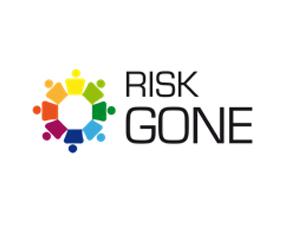RiskGONE
RiskGONE is a 50 months collaborative project within the call H2020-NMBP-TO-IND-2018-2020 Foundations for Tomorrow’s Industry, in the H2020 framework. The aim of the project is to provide solid procedures for science-based inter-disciplinary risk governance of nanotechnology, based on a clear understanding of risks, risk management practices and the societal risk perception by all stakeholders.
The project:
Engineered nanomaterials (ENMs) are covered by REACH/CLP regulations; the general opinion is that the risk assessment (RA) approach routinely used for conventional chemicals is also applicable to ENMs. However, as acknowledged by OECD and ECHA, the OECD and ISO Test Guidelines (TGs) and Standard Operating Procedures (SOPs) need to be verified and adapted to be applicable to ENMs.
RiskGONE will support the standardization and validation process for ENM by evaluating, optimizing and pre-validating SOPs and TGs and integrating them into a framework for risk governance (RG) of ENMs. The framework will comprise modular tools and will rely heavily on current strategies for the RA of conventional chemicals, complemented by methods for estimating environmental, social and economic benefits. It will incorporate ethical aspects and societal risk perception and will manage acceptable and unacceptable risks through transfer or mitigation. The focus of RiskGONE will be to produce nanospecific draft guidance documents for application to ENM RA; or, alternatively, to suggest ameliorations to OECD, ECHA, and ISO/CEN SOPs or guidelines. Rather than producing assays and methods ex novo, this will be achieved through Round Robin exercises and multimodal testing of OECD TGs and ECHA methods supporting the “Malta project”, and on methods not yet considered by OECD. This process will be accelerated by guidance documents for data storage/curation/accessibility optimisation, applied to well-characterized reference ENMs typifying the main physicochemical and toxicological features of ENMs. A transparent, self-sustained RG council, representing EU stakeholders, member states, industry and civil society, will be established. The RG framework and methods developed by RiskGONE will be transferred to the RG council, which will act as a science-based governance body for ENMs safety and provide responsible two-way communication with stakeholders and civil society, based on high quality information.
Partnership:
The RiskGONE consortium is comprised of 22 partners, 20 of which from Europe, one from USA, and one from Iran. The partners are highly experienced and internationally recognized institutes with long-standing expertise in multidisciplinary areas of nanosafety including characterisation, human-related nano-toxicology, environmental hazard, risk assessment, QSARs, in silico and nanoinformatics, risk-benefit assessment and life cycle assessment, safety governance, standardization, social science, ethics, and communication related to engineered nanoparticles.
Lead by the Norwegian Institute for Air Research (NILU,NO), the consortium is constituted by Luxembourg Institute of Science and Technology (LIST, LU), Institut za Medicinska Istrazivanja i Medicinu Rada (IMI, HR), Agencia Estatal Consejo Superior de Investigaciones Cientificas (CSIC, ES), Universitetet i Bergen (UiB, NO), The University of Birmingham (UoB, GB), Swansea University (SU, GB), Qsar Lab Spolka z Ograniczona Odpowiedzialnoscia (Qsar Lab, PL), Katholieke Universiteit Leuven (KU Leuven, BE), Università Ca’ Foscari Venezia (UNIVE, IT), European Environmental Citizens Organisation for Standardisation (ECOS, BE), Ideaconsult Limited Liability Company (IDEA, BG), Cidetec Nanomedicine (CID, ES), Universiteit Maastricht (UM, NL), NovaMechanics Limited (NovaM, CY), Malsch Neelina (MALSCH, NL), Transgero Limited (TGO, IE), Dechema (DECHEMA, DE), Iran Nanotechnology Initiative Council (INIC, IR), The Regents of the University of California (UC, US), Factor Social (FACTOR SOC, PT) and French Agency for Food, Environmental and Occupational Health & Safety (ANSES, FR).
Our role:
As specialist in nanomaterials characterisation, CIDETECNanomedicine will contribute to different Round Robin exercises related with the physico-chemical properties of the nanomaterials, their environmental fate and their accurate dosimetry in submerged in vitro experiments. The preparation of Consolidated Pre-Validated Guidance Documents for the size and size distribution determination and effective density measurement will be also our responsibility. In addition, material for training and educational purposes will be prepared in close collaboration with the rest of the partners involved in characterization field. Moreover, CIDETEC Nanomedicine has an active contribution in dissemination and exploitation activities.

Inicio: 01 | 01 | 2019
Fin: 28 | 02 | 2023
Presupuesto: 5.000.000 €
Financiador

Sectores
- Cuidado de la salud
- Industria farmacéutica
Campos tecnológicos
- Biomaterial para productos sanitarios












